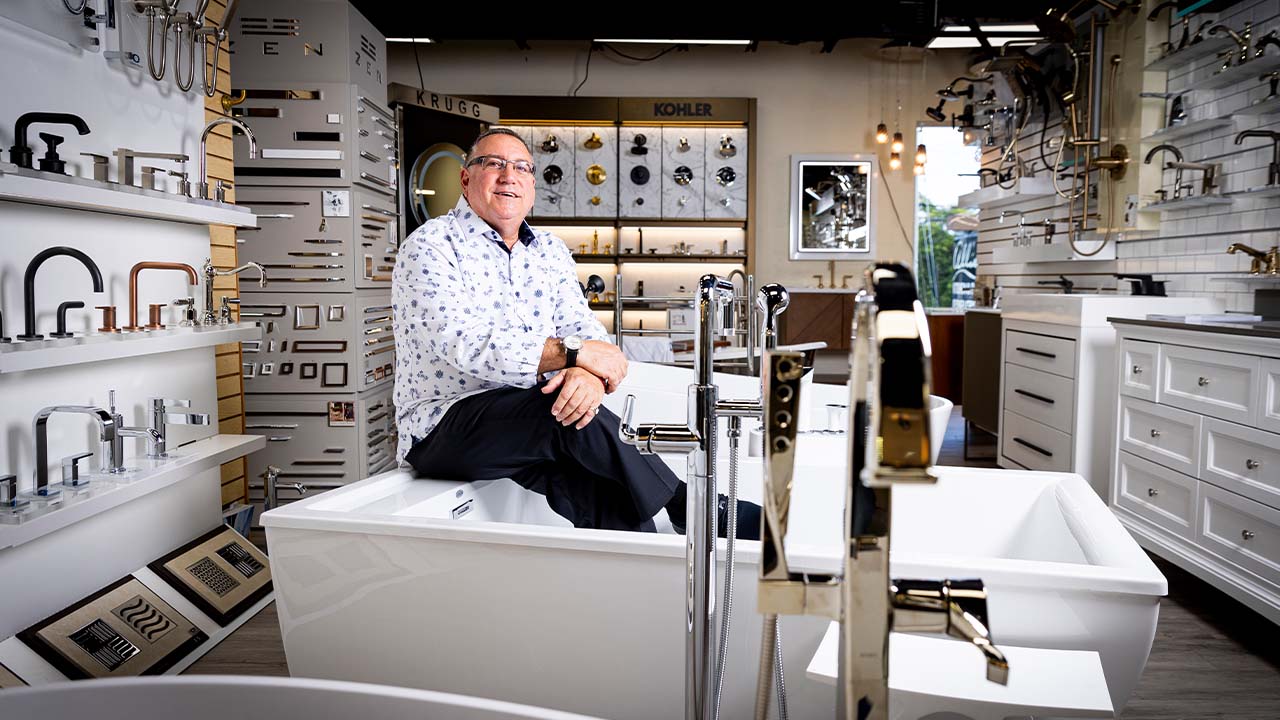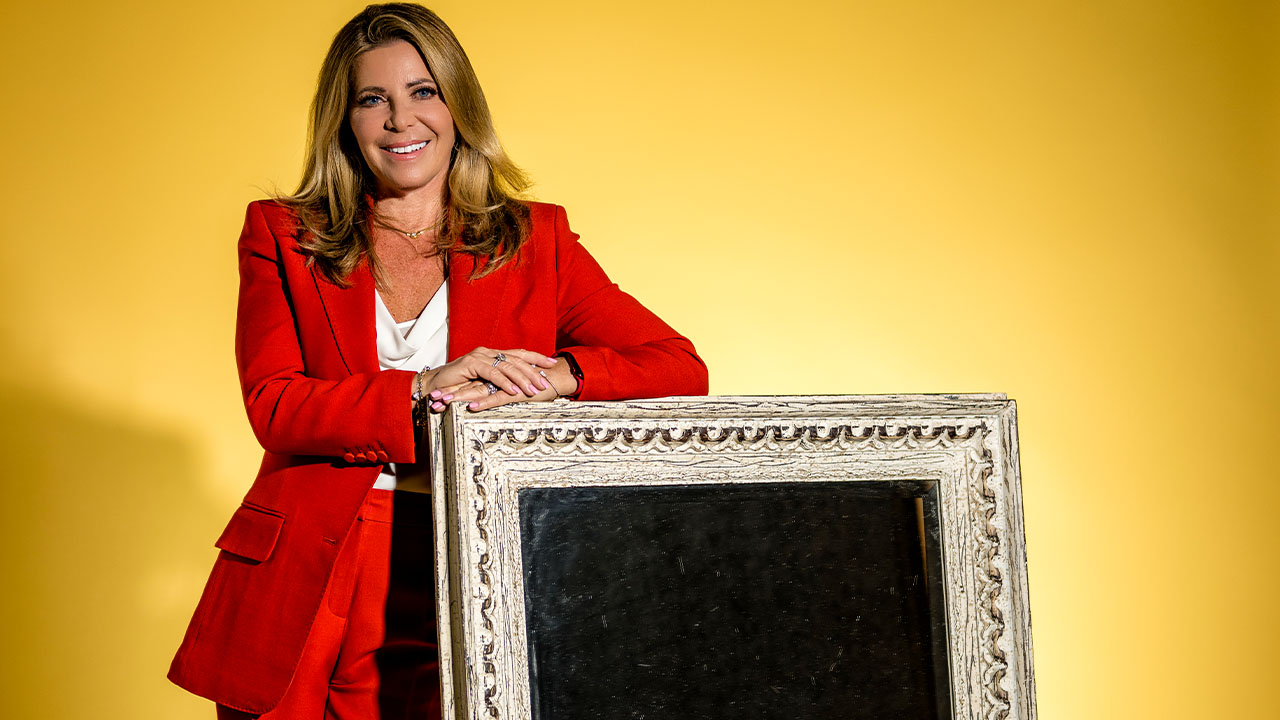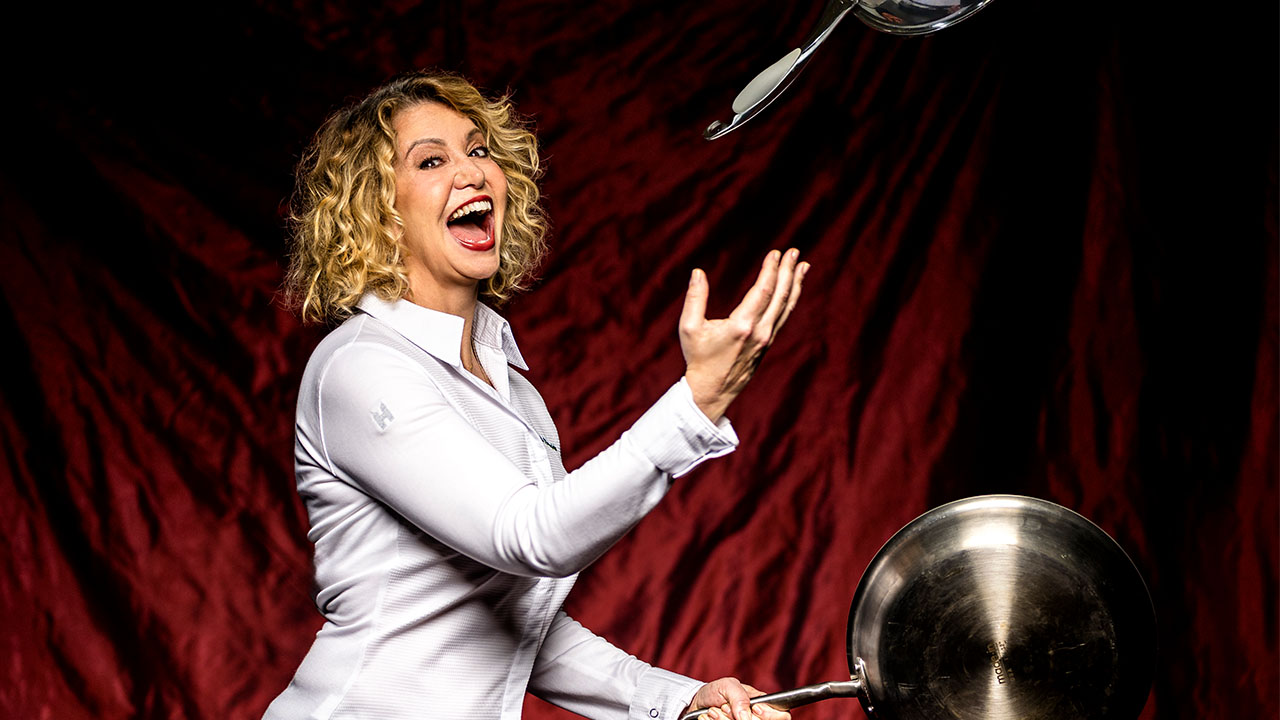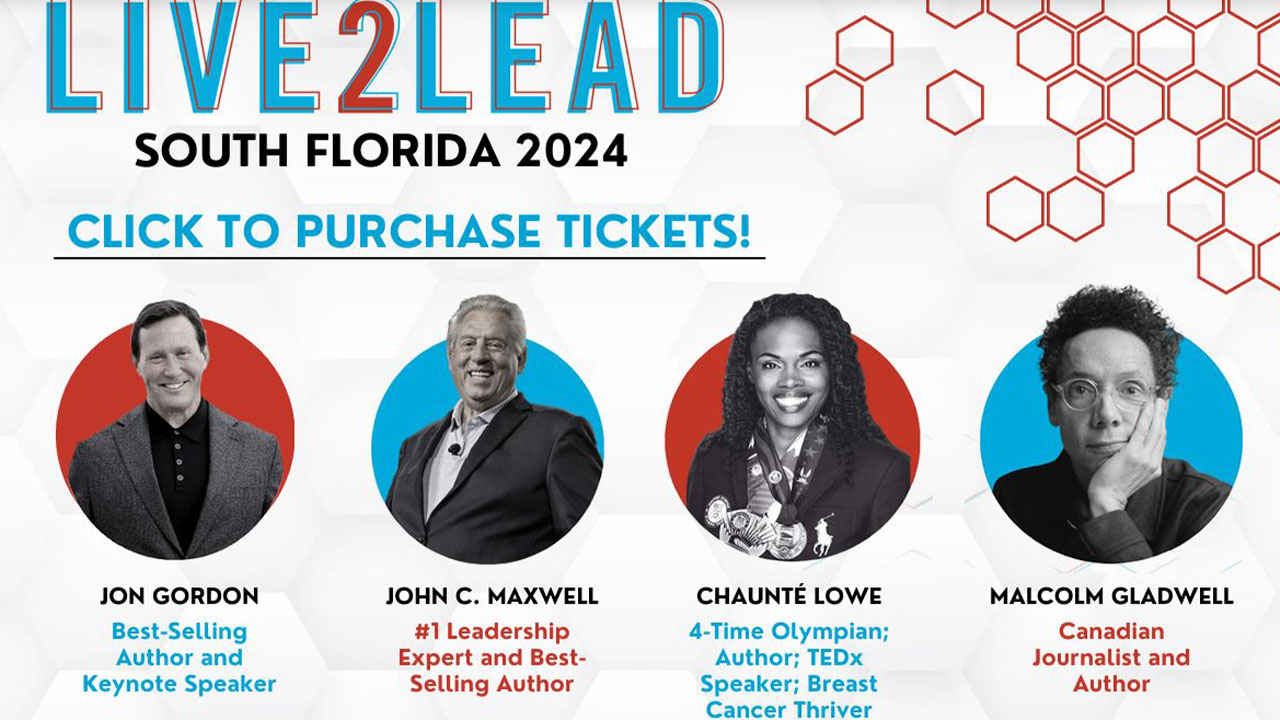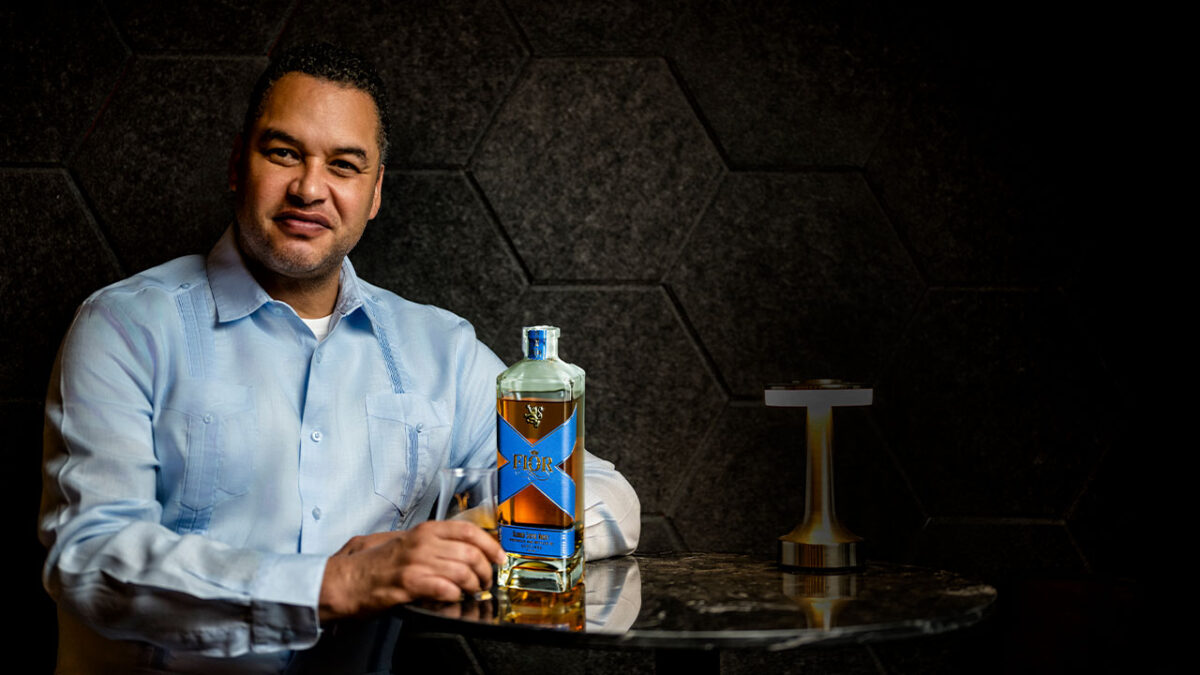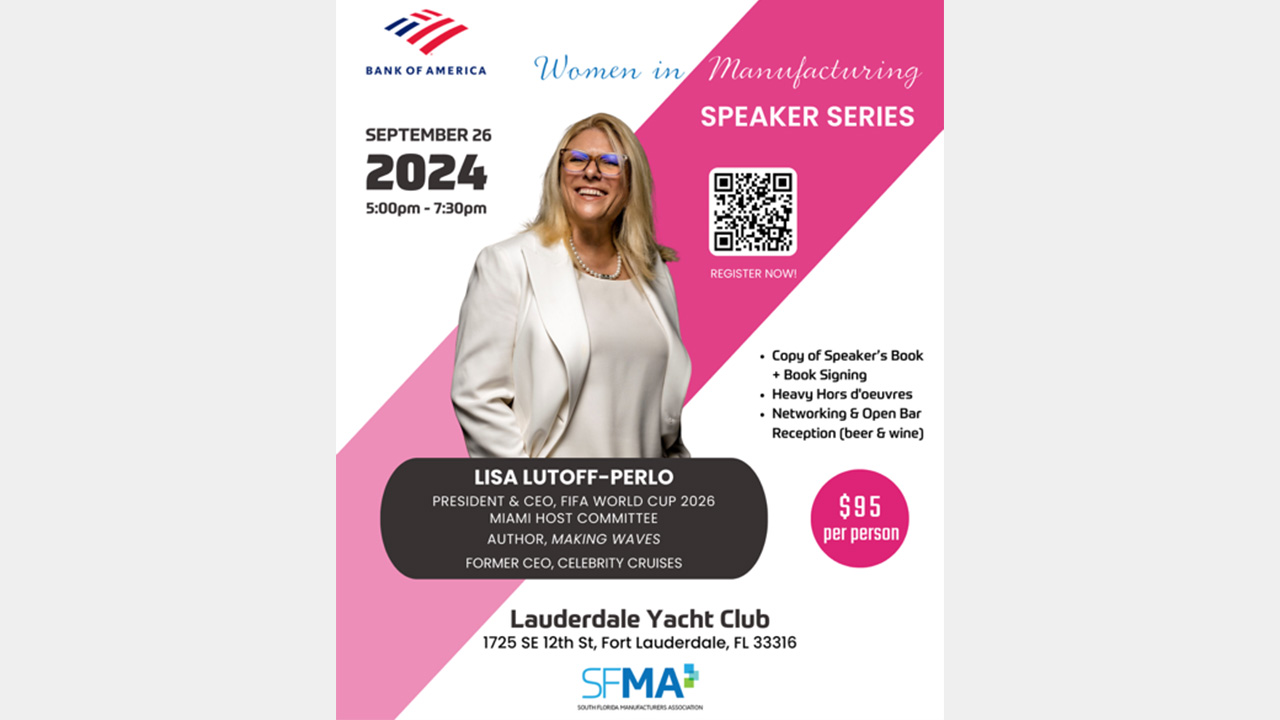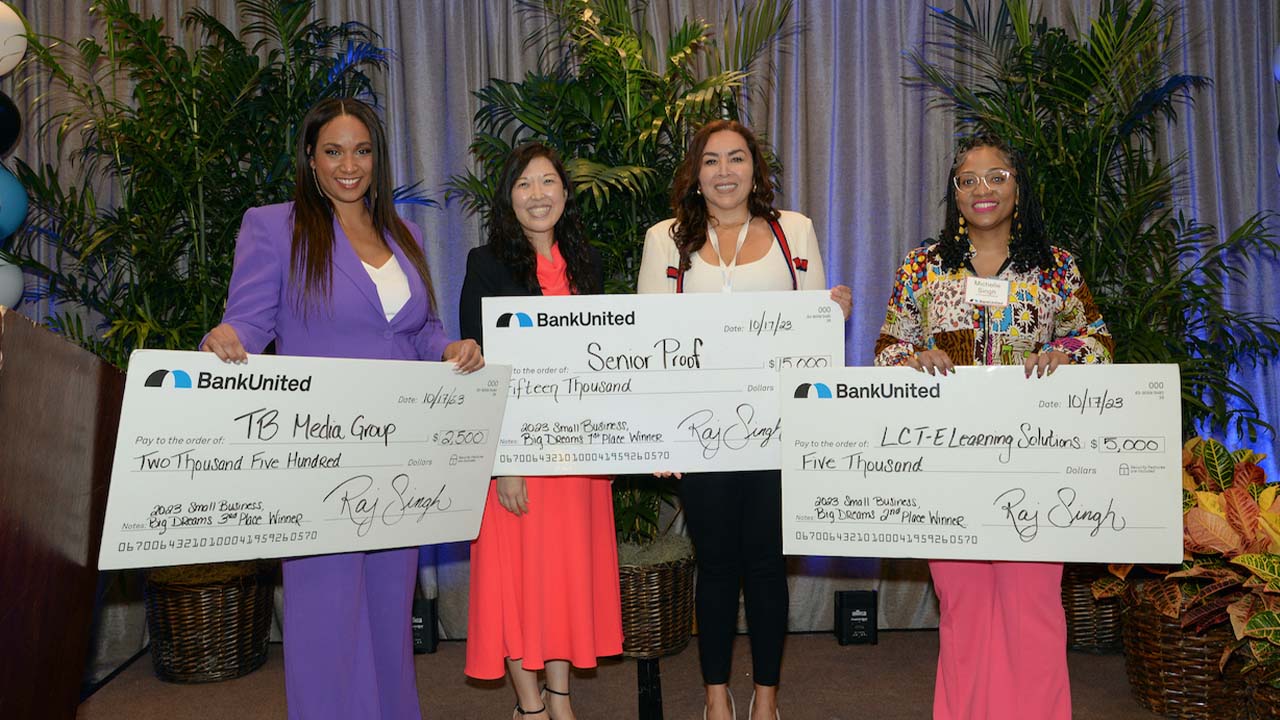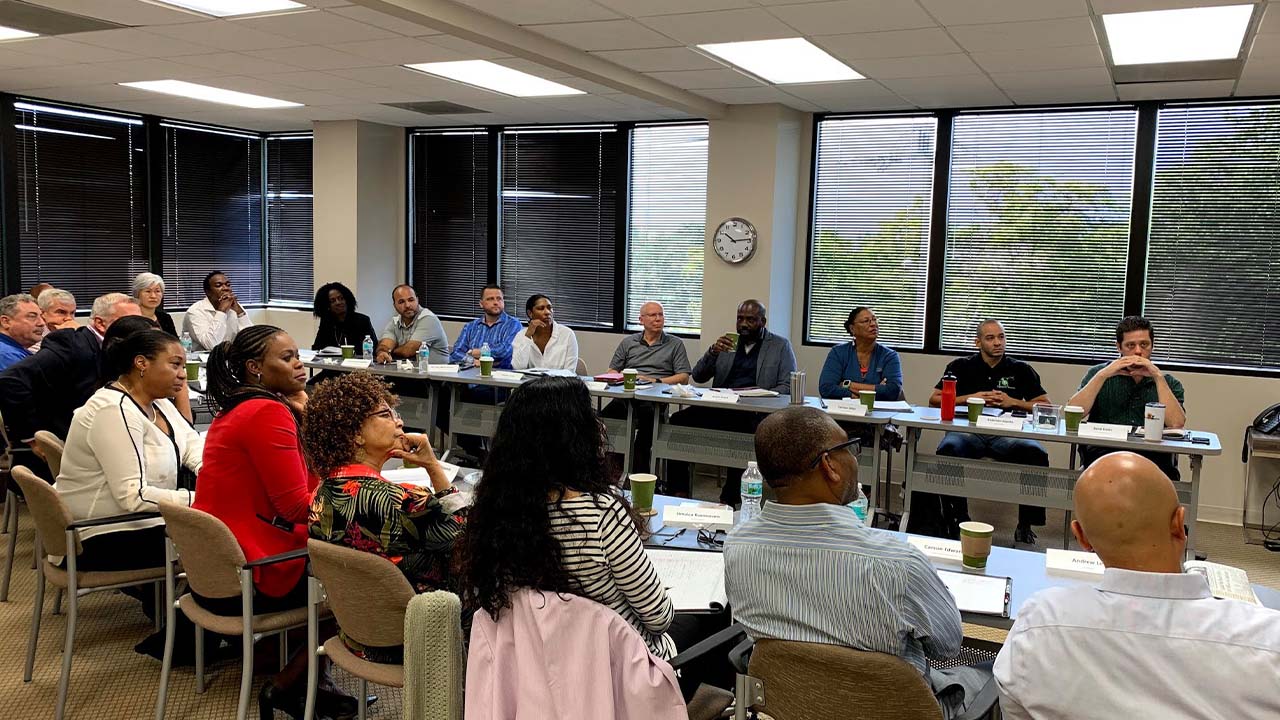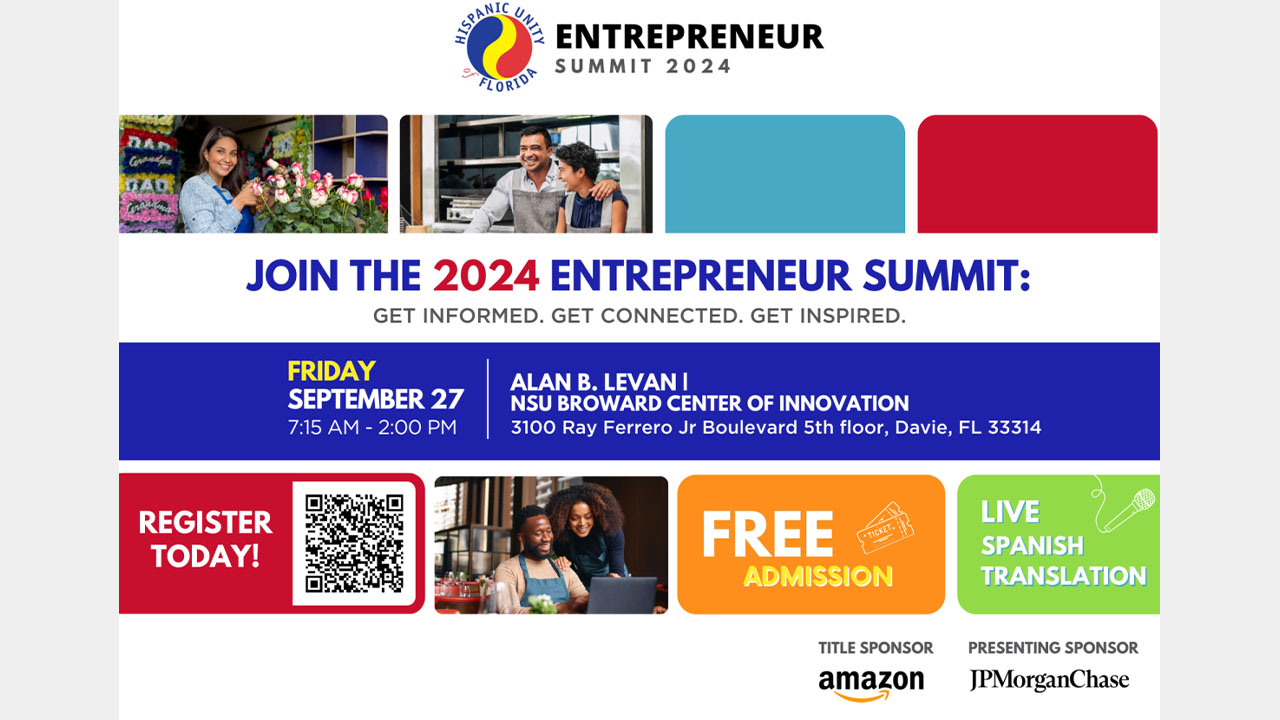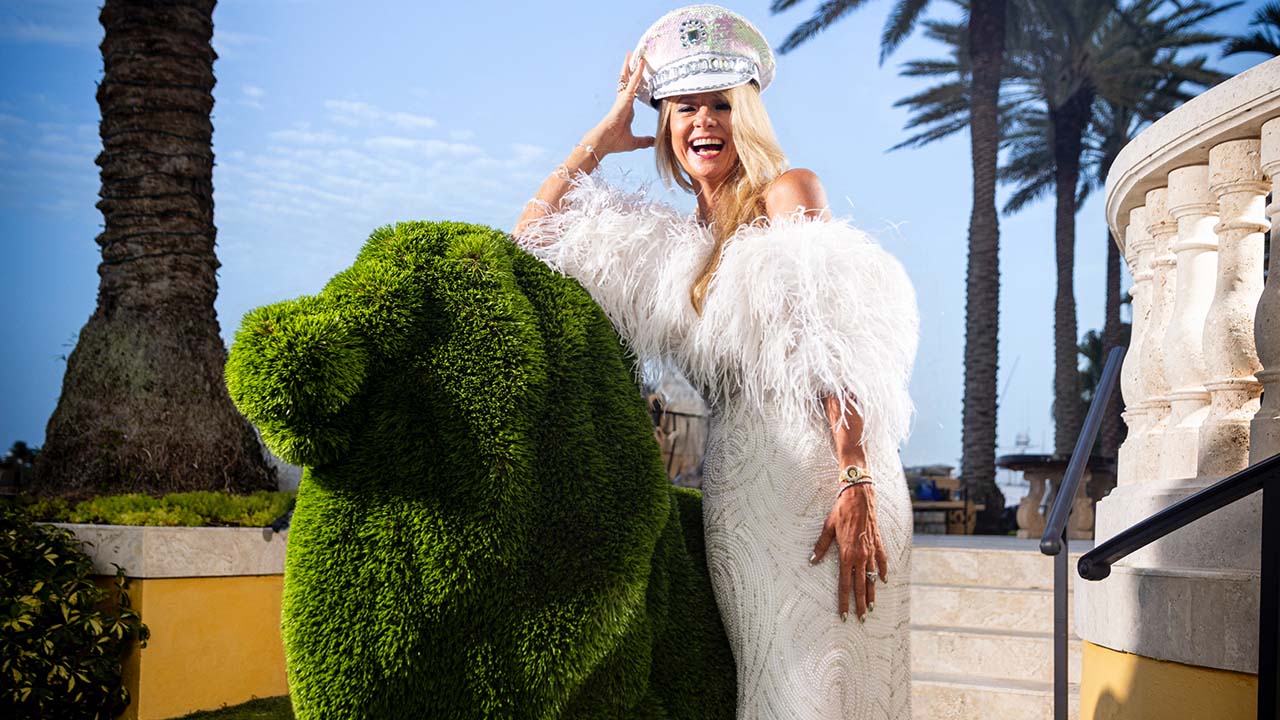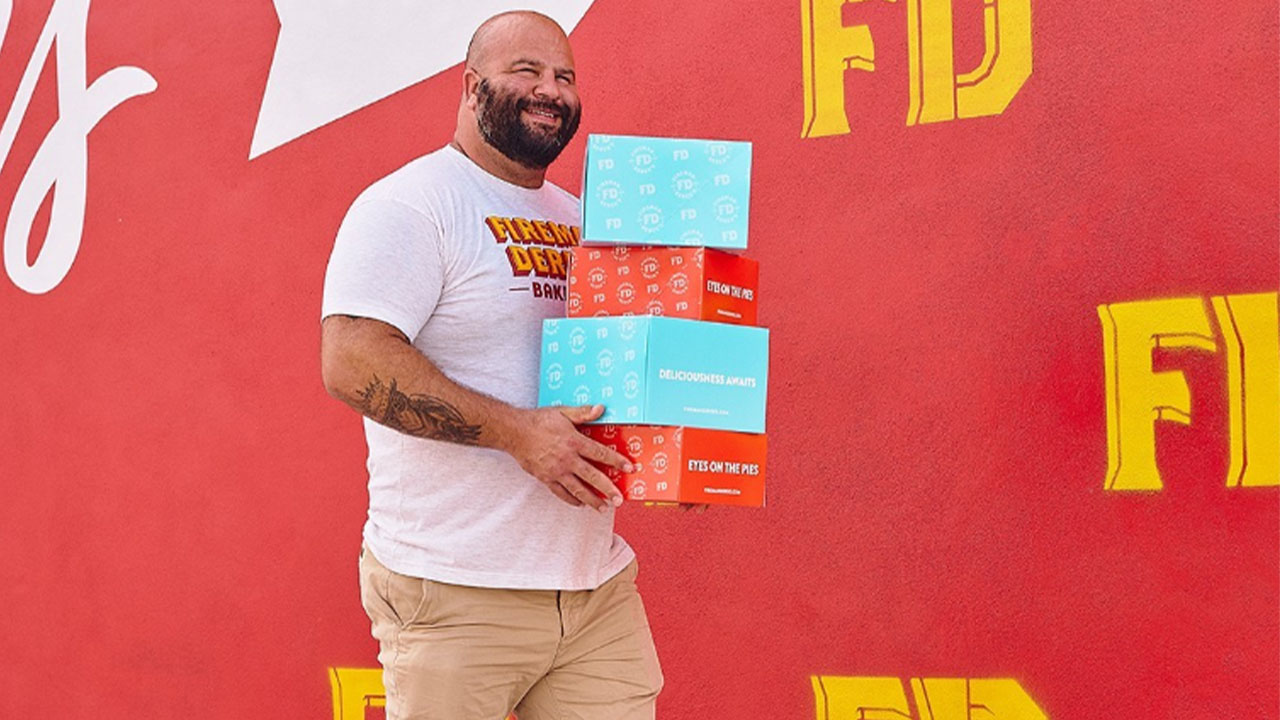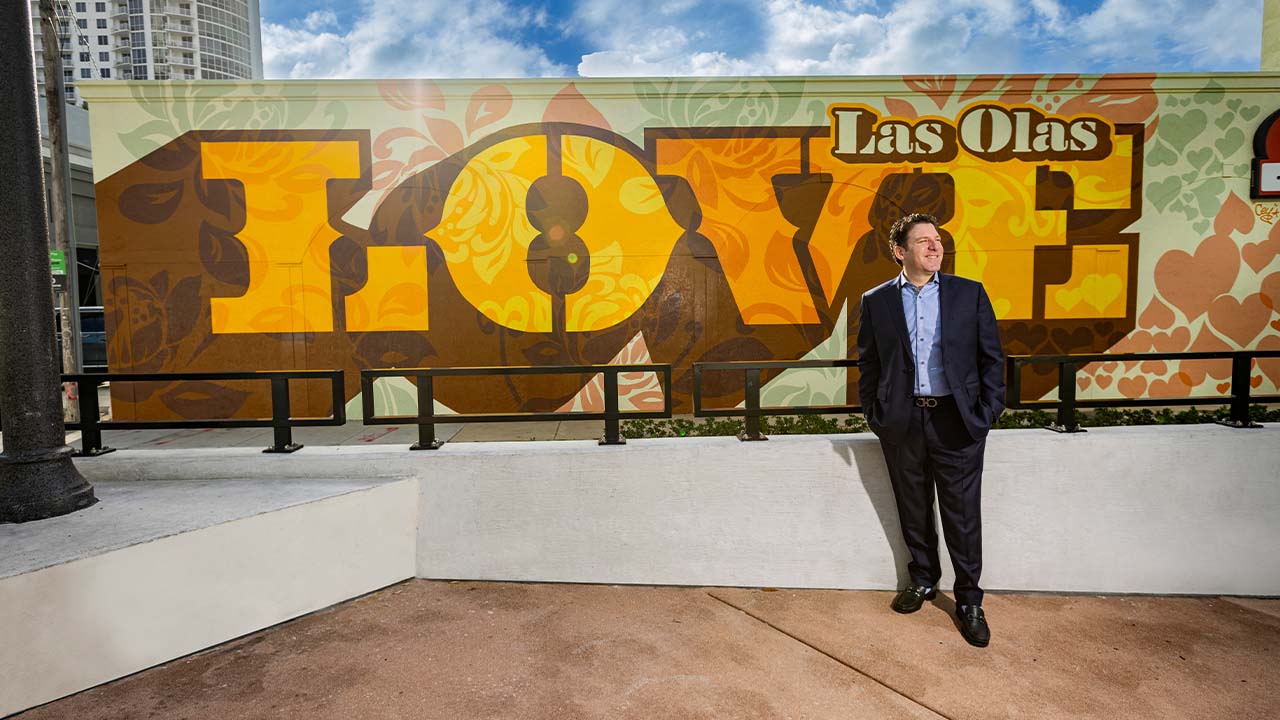Driving east on Oakland Park Boulevard, the eyes can’t help but zero in on the black block letters affixed to an old-fashioned, white marquee that fronts the design center at Allied Kitchen & Bath. For some four decades, the weekly inspirational quote underneath the sign has been more than just the talk of the town; it’s woven into the fabric of Broward County—a beloved mainstay on which people in the community have come to rely.
When we spoke to Allied president Bill Feinberg ahead of the company’s 40-year anniversary, the sign read “You can’t be hesitant about who you are.” The quote isn’t Feinberg’s, but it certainly describes a key aspect of his approach to the business he’s been leading alongside his brothers Joe and Rob since Allied was first incorporated in 1983.
“The billboard, meanwhile, is a story unto itself. “Every Monday we get out there. My brother changes the letters with a different quote, a different proverb or just a ‘thank you.’ Something to make the people think a positive thought.”
It’s a simple thing, Feinberg notes, but there’s no overstating its impact. Feinberg believes it has changed lives—and that it continues to do so.
“I know because we have people who come in here in tears because of the [quote on the ] billboard,” he says. “People who have avoided committing suicide. People who have gotten married because of the quote.”
Feinberg recalls receiving a voicemail from a local sheriff thanking him for a quote that appeared on the sign the morning that a Deerfield Beach police officer was killed: “Those that anger you control you,” the sign read.
“I saw that sign, and it allowed me to do what I needed to do to address the family,” the sheriff shared in the voicemail.
The billboard is just one of the ways Feinberg says he tries to give back to his community. For him, being a business owner is as much about giving back as it is about the business itself. Allied’s brand has become as synonymous with charity as it has design, construction and cutting-edge kitchen and bath offerings. Charity events are held regularly at the design center where Feinberg says he went so far as to have the architectural plans for the building redrawn to move the staircase from the hidden back to the front entryway so that its landing could double as a raised podium.
“I had a vision to have this railing with the staircase as my stage,” Feinberg recalls. “I’ve had probably well over 200 [charity] events in here since I built this showroom [in 2009].”
The most dear to his heart was a funky-tie fundraiser he held for the Leukemia and Lymphoma Society after his father lost his battle to the disease in 2003. In the first year, the event raised almost $100,000; and by the fourth year, the funds raised reached $300,000.
“It was pretty powerful,” Feinberg says.
After 40 years of business, Feinberg reflects on family, why giving back has been a core principle for Allied, how the company has overcome challenges like the recession and pandemic, and why one’s brand reputation is worth gold in this interview with Lifestyle.
Where did you grow up? What are your roots?
I’m from Philadelphia…My father was a hairdresser – a women’s stylist. For 30 years he owned his own shop…As a kid growing up in my teens, I would work with my dad in his beauty shop. I’d go there on Friday after school, and then work with him on Saturday as well. I was sweeping floors and taking curls out of women’s hair and eventually washing hair for the women.
I used to watch my dad, and I remember how he gave to these women–in his personality, his loyalty, his politeness. He really taught me to be a good person.
I watched how he treated his customers; everyone was like family. He had customers who stayed with him for 20 or 30 years. They adored him. He was their hero.
As a kid, he took great care of us [too]. He was a very stern father and he didn’t let us get away with anything, though, we four boys tried every which way. I look back today and think, ‘Wow. He really did a great job considering he couldn’t have made a lot of money.’
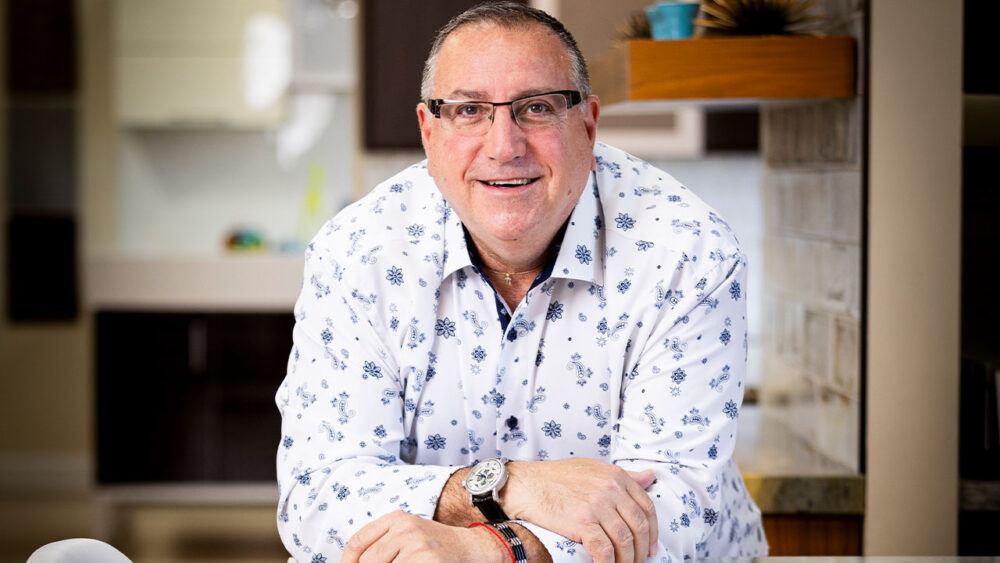
What did you want to be when you grew up?
[As a kid]I didn’t really think I would be in sales…but from the beginning, when I moved to Florida [when I was 19], I saw right away that I liked it and was successful.
I was always very business-minded. My brother Joe and I…when we weren’t working in my dad’s beauty shop…formed a window cleaning company. We would go around the neighborhoods and wash windows. We eventually built up a very successful business. That was my first legitimate business, and it’s still going to this day. We sold it to my brother’s friend Mitch, who is still running J&B [Joe and Bill] Window Cleaning.
When I moved [to Florida]– I met my ex-wife here–I just picked up and said, ‘Joe, [the window cleaning business] is yours.’…Then he came to visit me and said, ‘I like it down here too.’
One by one, each of my brothers moved down here. [At first] we were all working for this [other] company in the early 1980s… It was owned by my cousin…It was myself and my three brothers all working for him. He had about four or five other salespeople…It was door-to-door sales.
I started out as a canvasser… I was a tin man, literally knocking on doors, getting my cousin into the house so he could meet with the owners. We’d sell them windows, a roof, a kitchen or a bathroom. We had a little briefcase that was filled [with materials to show]. My cousin would drive us to a neighborhood – Boca Raton, Delray Beach, Boynton Beach, Palm Beach, Riviera Beach, West Palm Beach, Miami – it didn’t matter. We’d into a neighborhood, and he’d park the car on the corner. We’d walk up and down the street, knocking on doors. We were very successful at it…But I wasn’t seeing the commissions that we should have had.
I remember going to [my cousin] and saying, ‘Brian, we’re first cousins. We’re your number one salespeople. We’re cranking. You’ve got to work with us and do better–stop nickel and diming us… He looked at me and said, ‘Bill, business is business, and family is family.’ I will never forget it.
I think it was the very next day I met with my accountant–he’s still my accountant to this day. He told me how to form [my own] corporation. And I did in 1984. I opened up on Prospect Road right there where Garden Drug and Medical Supply store is in that little shopping center. And I worked out of a little storefront for a year. I found and bought this current building on Oakland Park in 1985. But immediately I took my three brothers. They came with me, and three of his [my cousin’s] salesmen came with me.
When Allied Kitchen & Bath opened up, my dad and my mom moved down here. They both came to work for me immediately. In the beginning–for the first 20 years–they both worked for us full-time. My mother was my bookkeeper; my father was the “go-for”–go for permits, go for lunch, go for whatever we needed… He was positive and caring. People loved his personality, and everybody remembers him. Even to this day, reps come in here that have built with me for 20 years…and they all remember my dad. They all think my dad started the business. But when my dad came down here, he really knew nothing about our business. We learned by trial.
He’s been gone now for about 20 years. And my mother, just a little shy of that. But up until the time they passed away, they both worked here.
It’s hard to believe it’s been 40 years. Here we are coming up to our 40th anniversary, and still, to this day, all three brothers are working together.
Why is giving back a core principle at Allied?
For 25 years I’ve told my story at the Jim Moran institute.I tell my story about how I built my business and what I do. It’s all based on philanthropy–it’s a core value of our company. Everything is about relationships. That’s what I tell people. If you create 10 relationships, you can earn a living. People want to do business with people that they like. It’s as simple as that…Everything is about relationships.
And I believe in passing it on–paying it forward. That’s the one motto that sticks in my head over and over: ‘The more you give, the more you get. Pay it forward.’
I try to teach that to my children. [My daughter] went into the corporate field for a couple years and then she had a couple of children. Now, she’s back to work for me…she sees it. I have her involved now helping me produce the charity events. In mid-October, we have our big event for breast cancer. Every year we turn the building pink, the whole showroom turns pink, and we raise money for breast cancer awareness. I even teach my employees how to give back, and the value in giving back.
Why did you decide to build a showroom?
Sitting in a seminar one year in Atlantic City, we were at the convention center in a big auditorium and the speaker said, ‘If you want to be successful in the long run, you need a showroom.’ As a remodeler, you really want to set yourself apart. You can work out of the back of your truck, or out of your house, but if you really want to excel, you need to have a showroom. You need a visual. And I looked at my brother Joe, he was sitting next to me, and said, ‘We could do that.’ And the minute we got back to Fort Lauderdale, we started driving around looking for property.
We were struggling in the 1980s before Hurricane Andrew hit. But Hurricane Andrew put us back on the map. I had so much business in a week. Though we were in Broward, I still did a lot of business in Miami-Dade County. I had a 305 area code. After Hurricane Andrew, for probably three to four weeks, there were no [working] Dade County numbers. But mine worked. So, when people called, I answered.
The first week we literally had 100 contracts to remodel homes and replace windows. And then, for the next couple of years, I was running like five trucks a day down to Dade County…every year we grew a little bit–10, 15 percent a year, up until 2007, when the recession hit.
When that happened, I had planned to build the new showroom. Finally at the end of 2007, beginning of 2008, I knocked the old building down and started the design center. Then recession hit, and here I am in 2008, building this monstrosity. We worked out of a trailer… I thought for sure I would go out of business.
But I did something different…I took all the money I had and advertised…I took an ad out in every magazine I could and just let people know ‘I’m here’…I had to succeed. I spent money to keep the calls coming in.
There were people that were still remodeling during the recession, and they would come here and go, ‘How are you building this building in this recession?’ Well, I had already taken the loans. So, we’re building it no matter what…It took us 18 months and we built this whole place and we stayed busy.
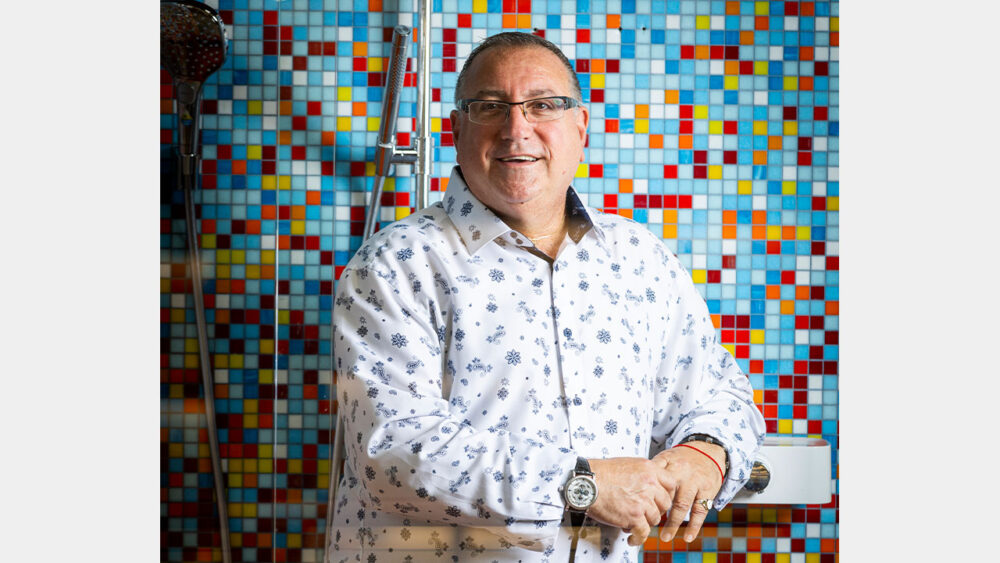
In retrospect, why do you think it was your instinct to go all-in during the recession?
I knew this showroom was going to be successful. There was nothing around like it. But here’s what always keeps me going and still does: right now, I have 70 families I need to feed. I need to keep bringing business in every week in order for everyone to feed their families. So, I’m constantly working on marketing to bring business in. I’m not just sitting there twiddling my thumbs. You have to work it. When the recession hit and I was building the showroom, I wanted to keep everybody employed, and I did. We did not let a single person go. And, same thing when the pandemic hit… I did not let one person go.
It seems the other thing you did was ramp up your involvement in the community. Why?
My vision was always to build the building for charity so I could use it for small charity events and raise money. At my grand opening in September 2009, I had 300 people here. Literally, cars were backed up beyond I-95 just to get here. Very prominent people attended [thanks to my PR firm]. That’s why I tell people marketing is so important…the impact of a PR company can be huge. It can make you seem like a bigger company than you are and make those connections that you normally couldn’t get on your own.
So immediately, I’m raising money, hosting these charity events, and it was very successful from the beginning. Giving back is great, but if my business isn’t successful, I can’t give back. That’s why I think people that are successful need to give back. You owe it to the community to do good and give a little bit back for what you’re making.
The community has been really good to me. People come to me and they say, ‘Bill, because of what you do for our community, because of the charity events that you host and I’ve attended, I’m hiring you.’
For selfish reasons, yeah, it brings business. But it’s also truly a calling that I think has really helped me and the community do good. I know it’s a win-win situation.
What other mottos does Allied live by?
We have another philosophy here that no matter what it costs, we must leave the customer happy. If we sold the job and there’s no profit in it, we still have to fix it. We have to fix it at all costs. There’s many jobs that we do to this day that we don’t make money on because we bid it wrong, or the customer is difficult and wants more and more and more. But we can’t afford a bad review. Today they’re quick to give you a bad review. We take it to the finish line and get it done. I preach to people–other business owners–that you can’t leave a customer unhappy.
A few years ago, we did a bathroom in Miami. We lost $5,000 on the job and we wrote an article for a remodeling magazine about the anatomy of an unprofitable job…There were half a dozen good reasons why we didn’t make money, but the customer never knew it. Two years later, the customer came into the showroom.
I said, ‘I got to be honest with you. I really can’t believe you’re here…I’m going to show you an article that I wrote on you and your job.’ I did…He said, ‘I had no idea.’
People call me today and I go back on service calls that are 10, 20 years old and don’t charge because I look at it as a lead. I feel every time the phone rings, it’s a hundred dollars…To get a lead in the door, it’s at least a hundred bucks…it’s probably $300 a phone call now. For me to go out there and do a service call, it costs me 100, 200 bucks. But I tell the customer, if you’re happy, tell your friends.
That’s all we want…We do that, and that’s why we get good reviews and people talk to us. They tell us ‘You’ve done jobs for my friends, my neighbors, my cousins, years ago.’ It’s a lot of repeat business we have…Our name is really 40 years in business with five stars. Our business name is gold.
Interview by Kevin Kaminski
Photography by Eduardo Schneider



